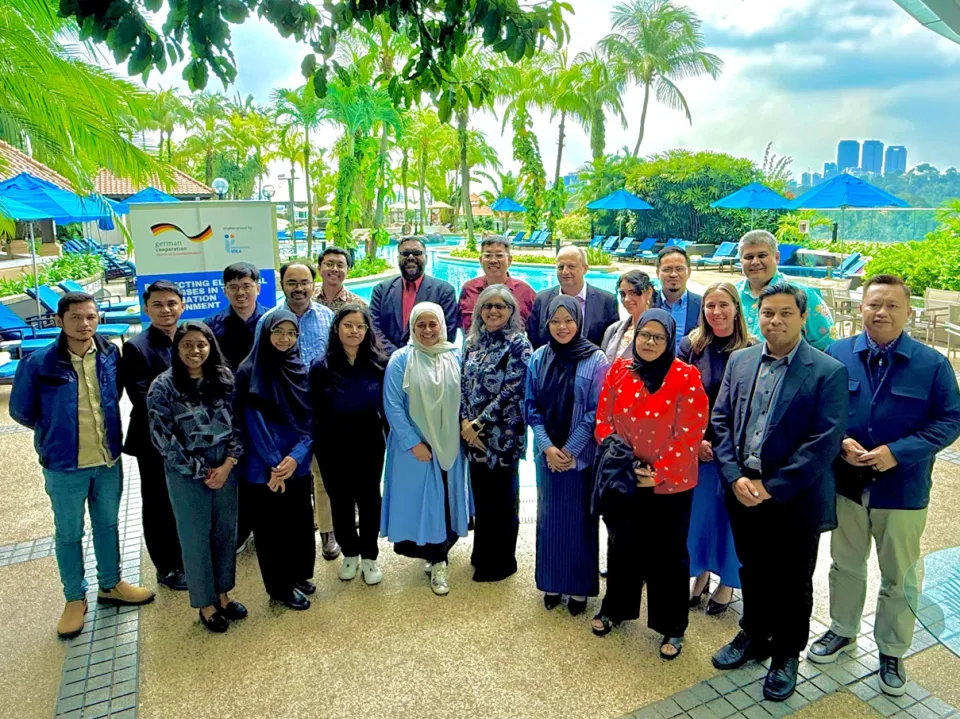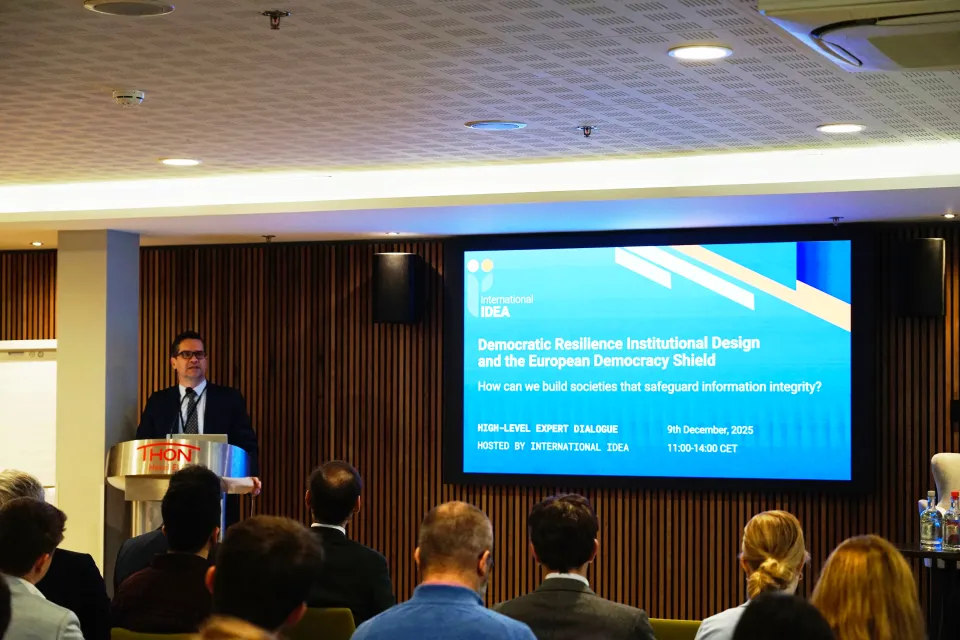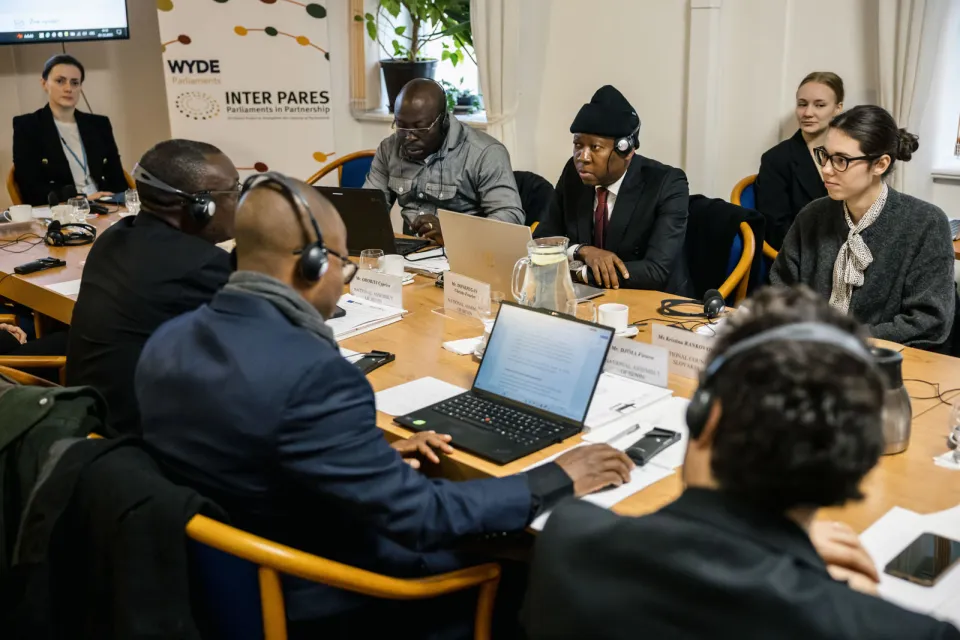Mongolia: Improving local democracy and accountability in service delivery in Ulaanbaatar

As part of Mongolia’s continued efforts to create a more bottom-up approach to further deepen democracy and improve service delivery at the local level, it will focus on using assessments designed to gather input from service users and to inform relevant local political reform and development agendas.
International IDEA, in cooperation with the Governor’s Office of Ulaanbaatar and the Transparent Ulaanbaatar Academy held a three-day training workshop in Mongolia's capital Ulaanbaatar in June to support plans to use two of International IDEA’s citizen-centred assessment tools: the Democratic Accountability in Service Delivery, and the State of Local Democracy.
Local democracy in Ulaanbaatar
Mongolia’s capital city, Ulaanbaatar is the political, economic and cultural centre of the country. The city is divided into 9 districts, and is governed by a City council (Citizens’ Representative Hural) with members, elected every 4 years with the latest legislative elections held on 29 June 2016. Earlier this year, the Office of the Governor of Ulaanbaatar City expressed interest in undertaking two new citizen-led democracy assessments, one of them focused on assessing the city’s quality of democracy by making use of IDEA’s State of Local Democracy assessment (SoLD) framework.
The State of Democracy Framework enables citizens to periodically monitor the health of their local democracy using a universal framework, and helps to recognize that the quality of democracy within a country like Mongolia may differ from one subnational level to another, and from one municipality to another. The Democratic Accountability in Service Delivery Guide builds on this knowledge and looks more specifically at ways to assess the degree to which public service delivery is subject to democratic accountability checks and, based on that knowledge, identify areas of concrete action for improvement. Both serve as practical tools for the Office of the Governor in designing and conducting Ulaanbaatar City’s own democracy assessments.
Assessing democratic accountability in Ulaanbaatar: Why now?
Mongolia’s capital city, Ulaanbaatar, where nearly half of the country's population resides, recently introduced three 'One-Stop Shop Service Supermarkets' in different parts in the city. These new service centres opened in 2015, and allow citizens to access any of the 280 public services offered, ask questions and file complaints.
City residents as well as herders living on the outskirts of town can visit a service centre to complete service registration forms and handle tasks such as paying utility bills, claiming child benefits, and handling land-right issues. Tasks which were previously handled in different offices all over town.
The service centres already have an analysis system in place in order to identify and improve flaws in existing service delivery. However, there is no system in place for the long-term assessment of accountability relationships, decision-making processes and management—a shortcoming identified by the local government and the Transparent Ulaanbaatar Academy, who will play a leading role in future developments regarding the assessment of local democracy and democratic accountability in service delivery.
Mongolia’s approach toward service delivery is treated as exemplary in the Asian context, as illustrated by several visits from other Asian delegations, which sought to learn from the Mongolian experiences (cf. UNDP; ILO). Nevertheless, participants of the training workshop stated that a lot remains to be done. Ulaanbaatar’s city government has space for increasing accountability in service delivery, and for fostering the role of local democratic institutions.
As in many other countries, the main area of interest are those services that touch upon people’s daily lives, and whose mismanagement can lead to damaging results. Participants mentioned examples like opaque accountability relationships in the construction sector, as well as situations concerning procurement processes, health and security.
Training the assessment teams
Representatives of civil society organisations, academia and local government administrators attended the training workshop in Ulaanbaatar, which aimed at familiarizing them with the tools on democratic accountability in service delivery and local democracy and how to implement them in a contextualised manner. The diverse composition of participants fostered an open discussion about the current state of local democracy and democratic accountability in service delivery, areas for improvement, and concrete ideas and proposals on how to achieve results. Participants stated clearly that one of the main goals of the assessment would be to influence decision-makers and to lobby for further positive developments in the sector through strengthening local democracy and accountability mechanisms. Another important aspect for the participants was the available options to ensure that decision-makers take responsibility for their actions and ensure that local democracy delivers for everyone living in Mongolia’s capital.
Mongolia’s record of accomplishment in assessing democracy
In 2005 Mongolia was one of the first countries to establish State of Democracy assessments as a fundamental part of an ongoing democracy evaluation process. This became an institutionalized process through the establishment of Mongolian Millennium Development Goal 9 (MDG-9) on democratic governance and human rights, which set in place permanent continuous assessments1. Today, more than 10 years after Mongolia became a pioneer in International IDEA’s citizen-centred assessments, a new chapter is about to be opened, as Mongolia is planning to enlarge their democratic efforts by assessing the quality of Ulaanbaatar’s local democracy and to identify ways to further strengthen democratic accountability in service delivery.
Since the beginning of the 1990s, Mongolia has worked hard on integrating democratic institutions and procedures with a traditional society, with a long-standing history of consensus and deliberation. In 2003, at The Fifth International Conference of New or Restored Democracies, the then-government, along with civil society, decided to conduct a State of Democracy assessment, in order to look beyond the status quo and identify paths of improvement.
Uncovering local democratic processes and decision-making mechanisms
The democratic accountability in service delivery assessment will lay the groundwork for a constructive and inclusive debate on how to hold public officials to account. By increasing democratic accountability, public officials will have more difficulty in engaging in corrupt practices, as they will have to be answerable and responsive to citizens and political institutions, and face the consequences imposed to them if they fail to do so. By assessing accountability mechanisms within Ulaanbaatar’s service delivery, responsibilities and decision-making processes will be identified and analysed. This outcome will be achieved to the fullest extent when both assessments are interlinked.
The findings of Ulaanbaatar’s first local democracy assessment will help the Governor’s Office understand citizens’ perception of Ulaanbaatar’s democracy, develop locally owned indicators for assessing the quality of democracy, and develop reform-oriented outputs to further enhance Mongolia’s democratic values, institutions and processes on the local level.
The adaptation to the Mongolian context will be supported by sharing experiences and lessons learned from previous assessments in Asia. International IDEA will continue to assist the Governor’s Office of Ulaanbaatar with relevant expertise and in making both assessments a reality.



